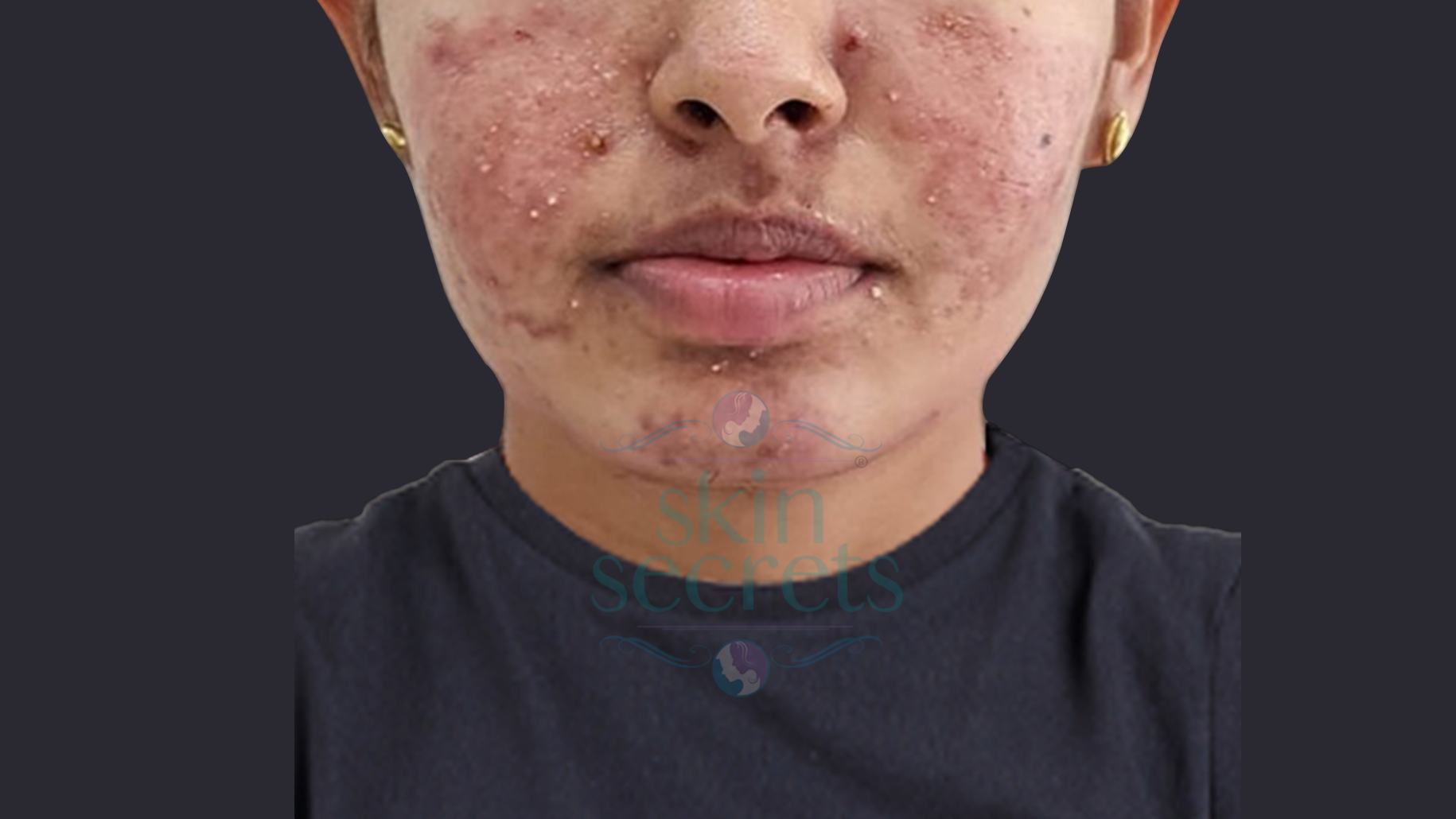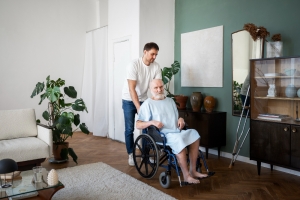Acne is a condition that affects millions of people worldwide, often leaving both physical and emotional scars. For many, the quest for clear skin seems like a never-ending cycle of trying various products, treatments, and remedies, only to face recurring breakouts. However, a more advanced and effective solution exists: Laser Acne Treatment Dubai.
This cutting-edge technology has transformed the way acne is treated, offering a path to not only clearer skin but also long-term improvement in skin texture and tone. In this article, we'll guide you through the journey of laser acne treatment, exploring its benefits, how it works, and why it might be the solution you've been searching for.
What is Laser Acne Treatment?
Laser acne treatment is a non-invasive procedure that utilizes laser technology to target the causes of acne, including excess oil production, bacteria, and inflammation. In addition to treating active acne, it also helps reduce the appearance of acne scars by stimulating collagen production and skin renewal.

This treatment works for a wide range of acne types, including:
- Cystic acne: Deep, painful lumps beneath the skin caused by clogged pores and inflammation.
- Nodular acne: Hard, inflamed bumps that can leave scars if untreated.
- Blackheads and whiteheads: Blocked pores that lead to visible blemishes on the skin.
How Does Laser Acne Treatment Work?
Laser acne treatment uses controlled light energy to penetrate the skin and treat acne at its source. Here's how it works:
-
Killing Acne-Causing Bacteria: A key factor in the formation of acne is the Propionibacterium acnes (P. acnes) bacteria, which thrive in clogged pores. Laser treatments help to kill this bacteria, reducing inflammation and preventing future breakouts.
-
Reducing Oil Production: Overactive sebaceous glands are a major cause of acne, as they produce excess oil that clogs pores. Laser treatments can shrink these glands, reducing oil production and leading to fewer breakouts over time.
-
Targeting Inflammation: Acne often causes redness, swelling, and inflammation. The laser's heat energy can reduce inflammation, resulting in calmer, clearer skin.
-
Promoting Collagen Production: For those dealing with acne scars, laser treatments promote the production of collagen, a protein that helps rebuild and repair the skin. This is crucial for improving the appearance of scars and smoothing out skin texture.
The Benefits of Laser Acne Treatment
Laser acne treatment offers several advantages over traditional acne treatments, making it a popular choice for those looking for long-term results. Here are some of the key benefits:
1. Targeted Treatment for Acne and Scars
One of the main advantages of laser acne treatment is that it targets both active acne and the scars it leaves behind. Many traditional treatments focus solely on reducing acne, leaving you to deal with scars later. Laser treatments address both issues, helping you achieve smoother, more even skin.
2. Long-Lasting Results
Unlike some topical treatments that provide temporary relief, laser acne treatment offers long-lasting results by addressing the root causes of acne. By reducing oil production and eliminating acne-causing bacteria, laser treatments can prevent future breakouts, giving you clearer skin for months or even years.
3. Minimal Downtime
While some acne treatments require extended recovery periods, laser acne treatments typically involve minimal downtime. Depending on the type of laser used, you might experience some redness or swelling for a day or two, but most people can return to their normal activities right after treatment.
4. Suitable for All Skin Types
Whether you have oily, dry, sensitive, or combination skin, laser acne treatment can be tailored to suit your specific needs. Skincare professionals can adjust the type of laser and intensity based on your skin type and acne severity, ensuring safe and effective results.
5. Boosts Confidence
For many people, acne has a significant impact on self-esteem and confidence. Laser acne treatment offers the chance to regain confidence by giving you clearer, smoother skin. When your skin looks better, you feel better about yourself, which can have a positive effect on many areas of your life.
Types of Laser Acne Treatments
There are several different types of lasers used in acne treatments, each designed to target specific skin concerns. The type of laser treatment that's right for you will depend on your skin type, the severity of your acne, and whether you have acne scars.
Here are the most common types of lasers used for acne treatment:
Ablative Lasers
Ablative lasers work by removing the outer layers of damaged skin, allowing new skin to grow in its place. These lasers are highly effective at treating acne scars and can significantly improve skin texture.
Non-Ablative Lasers
Non-ablative lasers target the deeper layers of the skin without damaging the surface. They stimulate collagen production and help heal the skin from within, making them ideal for treating both active acne and acne scars.
Fractional Lasers
Fractional lasers are designed to treat small sections of the skin, leaving surrounding areas intact. This type of laser creates microscopic wounds in the skin, which promotes healing and collagen production. Fractional lasers are effective at treating acne scars and improving overall skin texture.
What to Expect During Laser Acne Treatment
If you're considering laser acne treatment, you may be curious about what the procedure involves. Here's a step-by-step overview of what you can expect:
1. Consultation
Before your treatment, you'll have a consultation with a skincare professional. They will assess your skin type, acne severity, and any scarring to determine the best laser treatment for you. They'll also discuss any possible side effects and what kind of results you can expect.
2. Preparation
On the day of your treatment, your skin will be thoroughly cleansed, and you'll be given protective eyewear to shield your eyes from the laser light. Depending on the type of laser used, a topical anesthetic may be applied to reduce any discomfort during the procedure.
3. The Procedure
The laser device is passed over the affected areas of your skin, delivering light energy to target acne-causing bacteria, excess oil production, and inflammation. The procedure typically takes between 30 to 60 minutes, depending on the size of the treatment area.
4. Post-Treatment Care
After the procedure, your skin may be slightly red or swollen, similar to a mild sunburn. Your skincare professional will provide you with aftercare instructions, including recommendations for gentle skincare products and advice on avoiding sun exposure.
Aftercare and Recovery
Proper aftercare is essential to ensure that your skin heals effectively and that you get the best results from your laser acne treatment. Here are some tips to follow after your treatment:
- Avoid Sun Exposure: Your skin will be more sensitive after laser treatment, so it's important to protect it from the sun by wearing sunscreen with SPF 30 or higher.
- Stay Hydrated: Drinking plenty of water can help your skin heal from the inside out.
- Use Gentle Skincare Products: Stick to mild, fragrance-free cleansers and moisturizers to avoid irritating your skin while it heals.
- Follow Your Professional's Advice: Your skincare professional may recommend multiple sessions to achieve the best results, so it's important to follow their recommendations for follow-up treatments.
Comparing Laser Acne Treatment to Other Options
With so many acne treatments available, you might be wondering how laser acne treatment compares to other options. Let's take a look at some of the most common alternatives:
Topical Treatments
Topical creams and gels are often the first line of defense against acne. While these products can be effective for mild acne, they may not be powerful enough to treat more severe forms. Additionally, they often require consistent, long-term use to see results.
Oral Medications
Oral antibiotics and medications like isotretinoin are prescribed for more severe cases of acne. However, they can come with side effects such as dry skin, digestive issues, and sun sensitivity. Laser acne treatment offers a more targeted solution without systemic side effects.
Chemical Peels
Chemical peels exfoliate the skin's surface and can help reduce acne and scars. However, they may not be as effective at treating deeper acne or severe scarring. Laser treatments penetrate deeper into the skin and provide more comprehensive results.
Microdermabrasion
Microdermabrasion is a popular exfoliation treatment that can improve skin texture and reduce mild acne. However, it may not be as effective for treating active acne or deep scars, making laser treatment a more powerful option for comprehensive skin improvement.
Is Laser Acne Treatment Right for You?
Laser acne treatment is suitable for people with a wide range of skin types and acne severities. Whether you're dealing with occasional breakouts, severe cystic acne, or lingering scars, laser treatments can offer a solution. However, it's important to consult with a qualified skincare professional to determine the best treatment plan for your individual needs.
Conclusion: Your Journey to Clear Skin Starts Today
Acne can have a lasting impact on both your appearance and your confidence, but it doesn't have to define you. Laser acne treatment offers a path to clearer, smoother skin by targeting the root causes of acne and addressing scars at the same time. With its long-lasting results, minimal downtime, and ability to treat both acne and scars, this treatment is a powerful option for anyone looking to improve their skin.
By taking the first step toward laser acne treatment, you're embarking on a journey to healthier, more radiant skin—and a more confident you.






